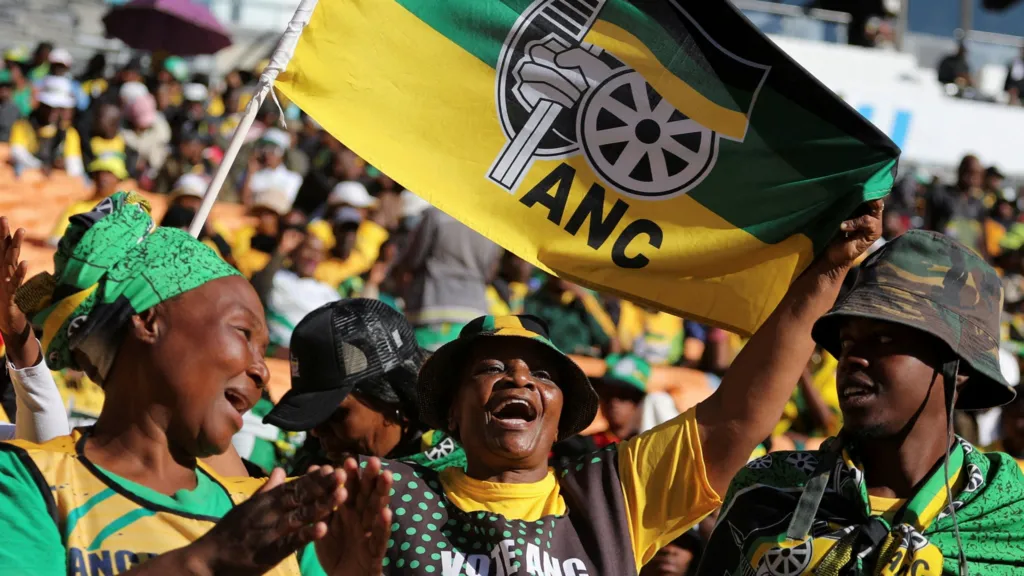South Africa’s governing African National Congress (ANC) faces a critical decision following its loss of a parliamentary majority in last week’s election, securing only 40% of the vote. The ANC must now find a coalition partner to form a government, as attempting to govern with a minority could prove challenging.
One potential coalition partner is the Democratic Alliance (DA), the second-largest party with 22% of the vote. However, this alliance would be politically contentious due to the DA’s perceived protection of white economic privileges established during apartheid—a charge the DA denies. Moreover, the DA opposes the ANC’s efforts to create a welfare state and its black economic empowerment policies, which the ANC views as essential for economic inclusion.
Another option for the ANC is to align with two radical splinter parties: former President Jacob Zuma’s uMkhonto weSizwe (MK) party and Julius Malema’s Economic Freedom Fighters (EFF). These parties, together with the ANC, could form a majority with their combined 65% of the vote. However, both MK and the EFF demand significant constitutional changes, including land expropriation without compensation, which the ANC has historically opposed.
President Cyril Ramaphosa has emphasized that any coalition must adhere to South Africa’s current constitution, complicating potential alliances with MK and the EFF. While the ANC and EFF together hold 198 seats—just short of a majority—they would need additional support from smaller parties or the controversial MK to achieve a parliamentary majority.
Meanwhile, the DA remains staunchly opposed to any coalition involving the ANC’s radical rivals, warning it could plunge South Africa into severe ethnic and racial conflict.
Adding to the complexity, the MK party, which secured third place in the election with 15% of the vote, is demanding a fresh poll and a new president, citing alleged election rigging without providing evidence. This demand, coupled with historical animosity between Zuma and Ramaphosa, creates a significant obstacle to any potential coalition.
Some ANC officials suggest that stability might be threatened if MK is excluded, especially given Zuma’s continued influence and the risk of violence in KwaZulu-Natal, his stronghold.
Another possible coalition partner is the Inkatha Freedom Party (IFP), with 17 seats, which could support an ANC-led minority government through a confidence-and-supply agreement. This would allow the ANC to govern while negotiating support for crucial legislation on a case-by-case basis, potentially averting a full coalition with either the DA or the radical parties.
As the ANC navigates these complex coalition negotiations, South Africans are eager for clarity on the future government structure before parliament convenes within a fortnight. The outcome will significantly influence South Africa’s political stability and economic trajectory.
